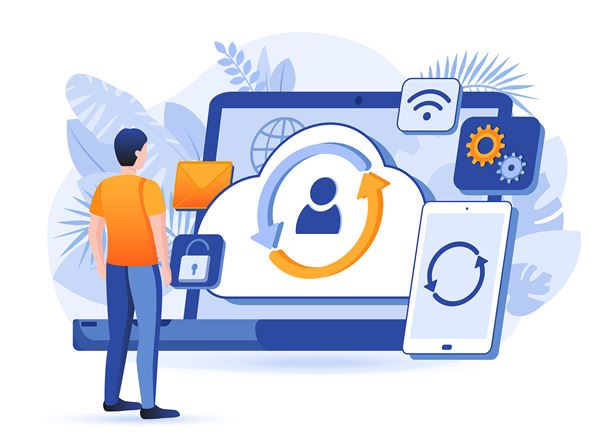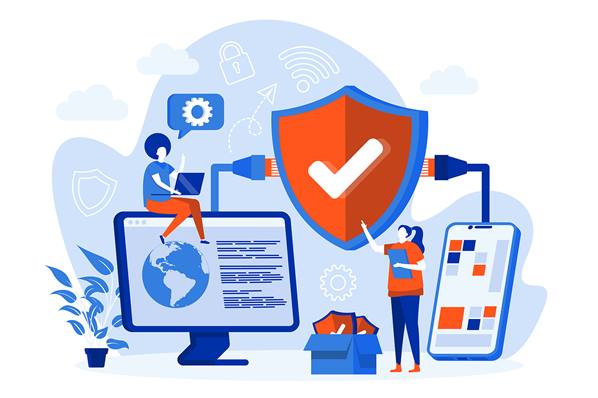
Running a business isn’t easy but having the right tools can make a big difference.
Today is a great time as any to be an entrepreneur. This is mainly due to the fact that there’s a huge number of useful software solutions that can make life easier by boosting the efficiency of business operations.
The key is finding the right tool. With so many different software solutions out there, how do you decide which ones you really need?
To help you out, we’ve created a list of software and other resources that every business should have.
1. Internal Communications
Having a single, centralized place where all your employees can get together and chat any time is crucial for the success of any business. Internal communications solutions like Slack enable employees to interact with each other seamlessly, allowing chat channels to be curated to talk about random, general, or business-specific topics.
In addition, many internal communication platforms allow you to integrate a number of business software solutions so that, besides communication, you can also see what team members have been working on.
2. Social Media Management and Monitoring
Today, having a social media presence is a must as it is the best way to reach new customers and set yourself apart from the competition. But how can you find enough time to manage all your social network accounts?
Social media management tools can help you plan and schedule your posts ahead of time. They also allow you to see and analyze the results they are bringing for clicks and engagement.
In addition, social media monitoring tools can pull in conversations from around the web and display them into a dashboard in order to allow you to see what is being said about your brand online.
3. Contract Management
Regardless of industry and size, all businesses have one thing in common – they operate based on a foundation of contracts. So, unless you want to have all your employees hunting for key data and neglecting their regular work duties each time something like an audit occurs, you’ll need contract management software.
By putting all your contracts in a single management solution, you’ll enable the right people to locate the right piece of information at the right time. You’ll also be able to review trends, analyze the data, and find areas for potential risk so that you can avoid them.
4. Email Management
Failing to open and respond to emails could bring your business to an end. It could be an important customer query or a new growth opportunity you can’t afford to miss. And yet, you seem to be drowning in emails and are unable to sort out the mess in your inbox.
Having an email management software will help you remain on top of your game. A good email management tool will automatically tag your emails and resurface them if either you or the sender doesn’t follow up within a certain period of time.
5. Knowledge Management
A knowledge management system is a tool or platform your business uses to share knowledge.
You can use a KMS to create guides, documents, and articles your employees or customers might need. This will enable them to find solutions to common issues related to your products or services.
The right knowledge management system will allow you to build an easily manageable knowledge base even on a small budget. It will also help you make sure that your customers can solve any issues within minutes and that your employees have access to the overall expertise held within your organization.
6. Customer Relationship Management
According to Grand View Research, CRM is the fastest growing software market today. In 2010, It was worth $14 billion and by 2025, it is expected to reach $80 billion, which is about a 600% increase!
If there is one thing to be true it’s that the more you know about your customers, the more successful your business will be. And what better way to achieve this than by keeping all your insights and notes in CRM software?
Customer relationship software is important because it collects, organizes, and manages all of your customer-related information. It can help you enhance communication with these consumers, improve customer service, and manage data across your marketing, sales, and customer support teams.
7. Accounting
A company’s financial system is quite complicated as it includes transaction history, auditing, and interpreting all sorts of financial reports. In the past, people managed all these things manually but fortunately, today there are different accounting software solutions that evaluate and take care of the financial status of a business.
This software supervises everything from accounts and invoices to payroll and reporting taxes, allowing you to save time and boots the efficiency of your organization.
8. Payment Processing
Payment processing software is critical for a business hoping to accept credit card payments.
Even though building a website and reaching consumers all across the globe is easier than ever, setting up your business to accept online payments is somewhat more complicated. Payment processing software will act as a “middleman”, connecting your business to the financial institutions that manage bank accounts and credit cards, facilitating your transactions and leading to sustainable success.

Final Thoughts
The above-listed tools and software solutions are especially beneficial for small businesses, where the management of individual business aspects is less specialized than in bigger corporations.
From contract management and internal communication to knowledge management and accounting, these tools can ease the burden of small business owners by allowing easily accessible documentation of all business activities and helping them run their companies more efficiently.




